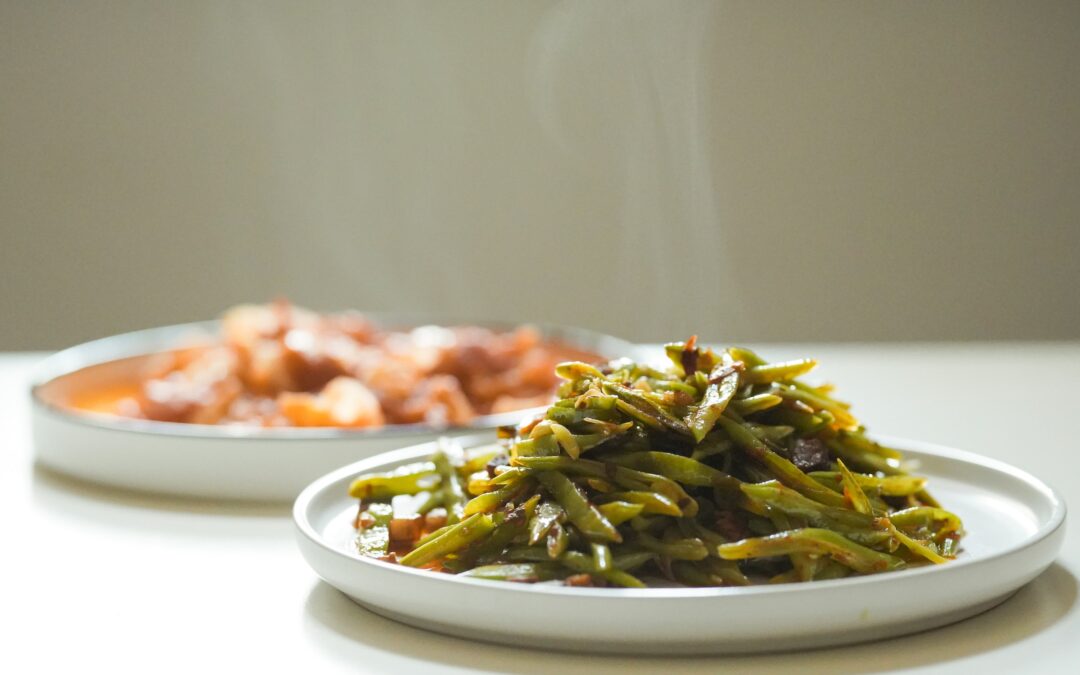In today’s blog, as part of the series on ‘preparing for Winter’, I’m going to look at food, eating and nutrition with a specific focus on what will best support you this Winter season – for your mood and energy whilst working from home and also, of course, for your immune system.
Nutrients
Not surprisingly, immunity is in focus more than ever this year and the foods that we eat play a key role in the strength of our immune system from an energy and nutrient perspective. So, you ideally want to make your meals as nutrient-dense and high-quality as possible: this means ingredients are fresh, unprocessed and preferably organic.
Something I’ve mentioned before is the 80/20 rule: aim to consume 80% high-quality, natural, whole ingredients and 20% less so. I don’t believe it’s healthy to be a purist about food, because that rigidness and inflexibility around what you will and won’t eat are also bad for your mental wellbeing, so you want to look at this as ‘crowding out the bad with the good’.
Seasonal food
There’s a reason seasonal foods are good for us and somehow feel ‘right’. It’s because our bodies are innately connected to mother nature, as are all living things, and if it weren’t for the modern-day world, we simply wouldn’t have access to so many of the foods that we do now.
Fruits and vegetables for example, that either aren’t native to our country or in season. This is one of the reasons we crave more warming comfort foods and carbohydrates in the Winter because that’s what would have been available, whereas we crave more salads and fruit in the Summer. Seasonal foods provide our body with what it needs at the right time of year.
Food frequency
This is key. So many people are mismanaging their blood sugar and they really have no clue, yet they suffer from the mental, emotional and physical symptoms as a result. If your blood sugar is chronically dysregulated, your body goes into a highly stressed-out state and your immune system is compromised.
This is why I always recommend eating three filling, balanced meals a day to keep your blood sugar stable and your body in a calm state. I know fasting is very popular, and there is a lot of scientific evidence to back the benefits, but it doesn’t suit everyone and that is very dependent on how stressed you are to begin with!
Balanced meals
In reference to the above; every meal or snack should ideally include all three macronutrients: carbohydrates, protein and fat. I know that carb-free diets are also very popular and there are also a lot of studies out there to back the benefits of diets like paleo and keto. However, again, these diets don’t suit everyone and that is largely dependent on your body’s baseline state. I believe our bodies need carbohydrates, but we also need to be mindful of how and which kind we eat.
Supplements
There are many reasons to take supplements. Firstly, it is very hard to get the full range of nutrients from the typical Western diet. That’s in part down to what we choose to eat, but the other problem is the fact that most foods aren’t as nutritious as they used to be due to over-processing and industrial farming methods.
Another issue is that chronic stress can compromise digestion and you therefore may not assimilate all of the nutrients from the foods that you do eat.
During the winter, I like to take a full spectrum immune-supporting multivitamin and I also keep all-natural vitamin C sachets on hand if I feel a little under the weather.
Our gut also plays a key role in immunity and I highly recommend using a probiotic to keep your gut microbiome healthy.
Focus on your food
While working from home it can be very easy to eat at our desks and work through meals. This was often an issue in the office at lunchtime but I’m hearing of many people who are also working through breakfast and dinner now that they’re working from home!
It’s really important to focus on your food and to be fully present for the experience as this enhances the digestive process, therefore meaning you will lessen the chance of digestive issues such as IBS and bloating and you are also more likely to better absorb the full range of nutrients.
Batch cooking
Prepare your snacks and lunches for the week ahead and also bulk freeze meals like cottage pies, stews, curries etc in portions, which you can then easily heat up whenever you don’t feel like cooking from scratch.
Investing some time to batch cook over the weekend or one evening saves you a whole lot of time and effort in the long run and means you will avoid skipping meals or eating poorly!
Next week we’ll be looking at the concept of ‘hygge’, a Danish lifestyle trend that you may have heard of after it became popular a couple of years ago. It’s a concept that, if embraced, will help you this Winter and beyond, so I look forward to sharing that with you next week!
Kate


